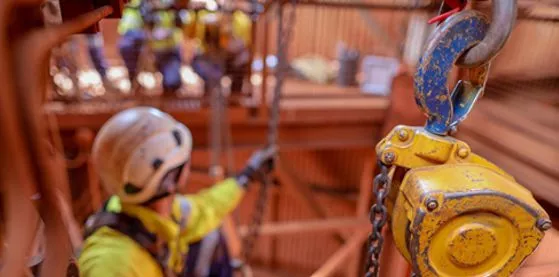OPITO Rigger Initial Training
This training is for personnel who wish to conduct rigging/lifting operations in oil-and-gas and renewable energy industry.
Purpose
This training is for personnel who have had little or no training and/or experience in rigging and lifting operations and wish to gain an Industry-recognised introductory certificate in rigging and lifting operations prior to undertaking further supervised workplace training. It aims to equip the delegate with knowledge of the rigging principles, general hazards and risks of rigging and lifting operations, an awareness of relevant legislation and regulation, and an opportunity to practice basic rigging operations following a lifting plan.

Content
- The role of the Rigger
- Relevant legislation and management of the hazards
- The principles of rigging and lifting
- How to prepare for the lifting operation
- Preparation for lifting operations
- Carrying out the lifting operation
- Restoring the work area and post-operation responsibilities
- Practical exercises will be held at the training centre’s rigging frame using various types of rigging equipment and performing various types of lifts as per lifting plans prepared by the centre.
Please note, that the issue of the Rigger Initial Training Certificate indicates that the learner has achieved the minimum level of training as defined by employers and approved by OPITO; it does not imply competence in the Rigger role.
Note: The OPITO Rigger Workplace Experience Logbook must be completed and OPITO Rigger Competence Assessment must be undertaken during this two-year and eight month period if the learner wishes to achieve an OPITO-approved Rigger certificate of competence. Please note: If the expiry date on the learners previous certificate is within 3 months prior of the course enrolment date then the date of the new certificate should correspond with the expiry date of the existing/previous certificate unless stated otherwise by the Duty Holder or Asset Owner or Operator.
Admission requirements
Medical entry requirements
Delegates who wish to undergo this training should:
a) Possess an employing company approved medical certificate equivalent to an offshore medical certificate.
OR
b) Undergo medical screening by completing an appropriate medical screening form provided by the Lerus Training Centre
Want to know more about OPITO Rigger Initial Training
Get in touch with our bookings team on +37060741711 or email the team at klaipeda@lerus-online.com








